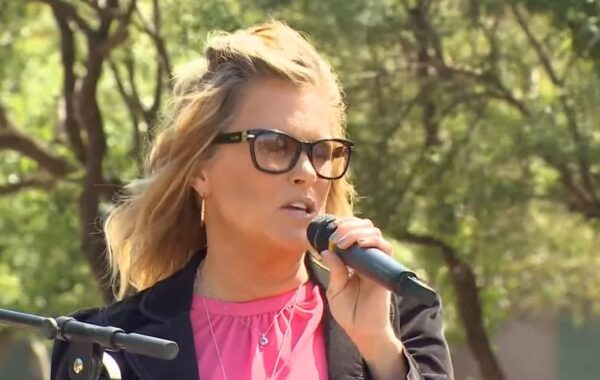Shelley Luther, a Texas salon owner, became a notable figure during the COVID-19 pandemic when she defied state quarantine orders in April 2020. Despite the risks posed by the pandemic, Luther opened her salon in an effort to support her family and sustain her business, which was impacted by the statewide stay-at-home policies. Her actions resonated with many, leading to a significant outpouring of public support. When served a citation by the Dallas authorities for violating the mandated stay-at-home orders, Luther made headlines by publicly shredding the citation at a rally, declaring, “We have a right to run a business and feed our children.” She was cheered on by a large crowd that viewed her as a symbol of resistance against perceived overreach by local authorities.
The consequences for Luther’s decision to open her salon were severe; she was sentenced to seven days in jail and fined $7,000 by a judge who was seen by supporters as biased against her cause. Luther, however, refused to apologize for her actions, further solidifying her status as a martyr for small business owners and freedom advocates. Her determination and unwillingness to conform to the stricter measures made her a rallying point for those who felt the restrictions were unjust and detrimental to their livelihoods. The public perception of Luther shifted from that of a rule breaker to one of a courageous leader in the fight for economic freedom, with some even likening her actions to those of civil rights icon Rosa Parks.
In the wake of Luther’s imprisonment, public sentiment began to sway towards her favor, prompting significant political responses. Texas Governor Greg Abbott quickly addressed the issue by modifying the stay-at-home orders in early May 2020, making it clear that he would not support the incarceration of business owners who were simply trying to survive the economic fallout of the pandemic. Abbott emphasized that throwing Texans in jail for attempting to keep their businesses afloat was unjust, and his actions reflected a growing frustration among the public regarding the strict limitations imposed during the pandemic. Abbott’s announcement that violators of the orders would no longer face jail time was welcomed by many who felt that their rights were being infringed upon.
Luther’s defiance and subsequent victory over the judicial penalties not only brought her personal recognition but also sparked a broader debate about personal freedoms, the rights of business owners, and the balance of power during a public health crisis. A sizeable movement developed around her story, with many individuals viewing her as a champion of economic revival and personal responsibility. The incident became emblematic of the struggles faced by small businesses during the pandemic and ignited discussions on the extent to which government can intervene in personal and economic affairs during emergencies.
As the narrative of Shelley Luther unfolded, she transformed from a lone salon owner into an influential political figure, culminating in her election to the Texas House of Representatives. Her victory at the polls showcased the support she garnered from constituents who identified with her battle against government restrictions. In her new role, Luther is expected to advocate for small businesses, push for policies that support economic recovery, and continue the fight for individual freedoms that she championed during the pandemic. Her election serves as a testament to how civil disobedience can intersect with political engagement, leading to tangible changes in legislative representation and local governance.
Luther’s journey reflects a pivotal moment in the ongoing discourse surrounding government authority and economic preservation, particularly during crises like the COVID-19 pandemic. Her actions stirred public emotion and galvanized support that ultimately translated into political capital. As she embarks on this new chapter as a state representative, Shelley Luther embodies the spirit of resilience and advocacy for personal and economic freedoms, signaling a shift in political dynamics in response to the challenges faced by business owners and citizens during extraordinary times. Her election marks not just a personal triumph but potentially transformative implications for policies affecting small businesses in Texas and beyond.

